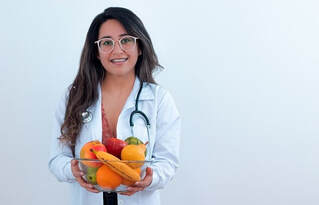
Of course, we all know we need to "eat healthy" in order to be healthy - but what does that even mean?
There are literally millions of blogs, articles, papers, journals, and books about healthy eating available to us, yet as a country, we continue to struggle with diet-related disease and other health problems year-after-year, without much sign of improvement.
Here are just a few startling statistics:
- Did you know that the US spent $4.3 trillion on healthcare in 2021, and we are on pace to top $7 trillion by the end of this decade?
- Only approximately 12% of Americans are considered “metabolically healthy.”
- That means the other 88% of us aren’t even meeting basic medical guidelines for things like blood pressure, blood glucose, cholesterol, and other markers of metabolic health!
So what's the problem?
As we've discussed so many times before, it all comes back to what we eat.
There's no simple answer (well, there is, but most people don't realize it), but all of the conflicting nutrition information out there isn't helping matters. Most people who try to eat healthy simply end up more confused than ever, and often give up before seeing results.
However, there are some promising developments in the medical sciences that may actually help to move things in the right direction. In this fascinating podcast episode, you'll learn more about why food should actually be considered "medicine," and how some efforts are being made to bring this philosophy into practice in the modern medical system.
In this episode of The Doctor’s Farmacy, Dr. Mark Hyman joins Mark Walker, the Chairman and CEO of Performance Kitchen, the leading Food Is Medicine® company revolutionizing the U.S. healthcare system, to talk about incorporating food as medicine into the healthcare system, how physicians can prescribe food, and what it could mean for our nation's health and economy.
Mark is one of the leading experts in the country on the new industry of Food Is Medicine, which is the application of healthy food paid for by the U.S. healthcare system.
In recent years, some experts in the medical industry have finally begun to recognize that food really is medicine - and it can actually be more effective–most of the time–than pharmacology for chronic disease. You can do things with food that you can’t do with most drugs, such as actually curing a problem, rather than just managing symptoms. A perfect example is diabetes. You can manage type 2 diabetes and blood sugar levels with pharmaceutical drugs and injections, but you can actually reverse type 2 diabetes with food and lifestyle interventions.
Check out the episode below to learn more about the integration of food as medicine into our healthcare system, what medically tailored meals are, and how you can access them through your insurance provider.
You'll also learn about:
- The current state of our “healthcare” system (4:50)
- The effectiveness of food as medicine (7:47)
- Incorporating food as medicine into our existing healthcare system (9:21)
- How payers benefit from food as medicine (13:16)
- Medically tailored meals (14:59 )
- The economics of food as medicine (21:47 )
- Obstacles around prescribing food as medicine (31:59)
- Accessing medically tailored meal benefits (39:01)
- How Performance Kitchen is interfacing in this space (42:40)
- Mark’s personal story reversing prediabetes (47:08)
- And more!
Watch now:
Want to help spread the message? Share this with your friends or social media platforms, and ask your doctor to look into the Food Is Medicine movement.
To your health,
Rose.



 RSS Feed
RSS Feed